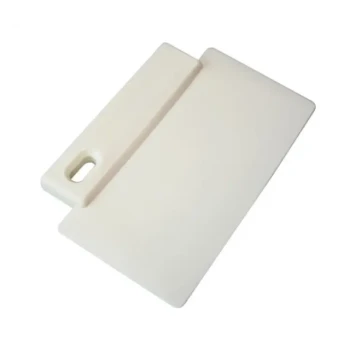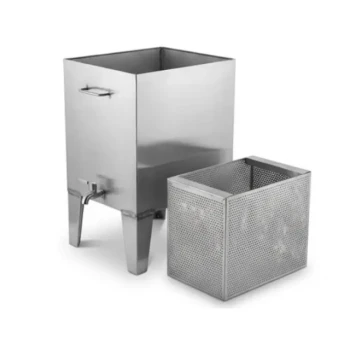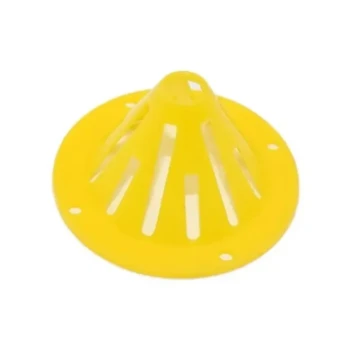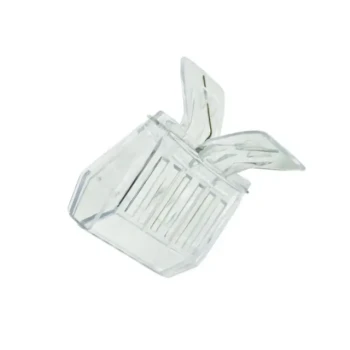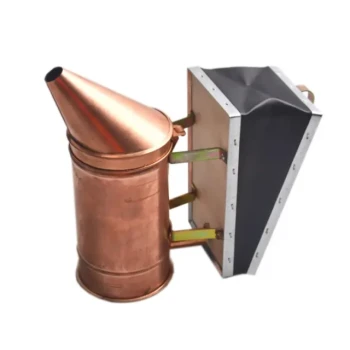Drivert sugar is a specialized, finely processed sugar that is formulated to be used in its dry form for feeding honey bees. It is the preferred choice for winter feeding because it allows bees to consume it directly without the beekeeper having to add water, which is critical for hive health in cold weather.
The central decision in feeding bees is not just about the type of sugar, but its form—dry versus liquid. Dry sugar, like drivert, is a strategic tool for winter survival, primarily because it provides energy without introducing dangerous moisture into the hive.
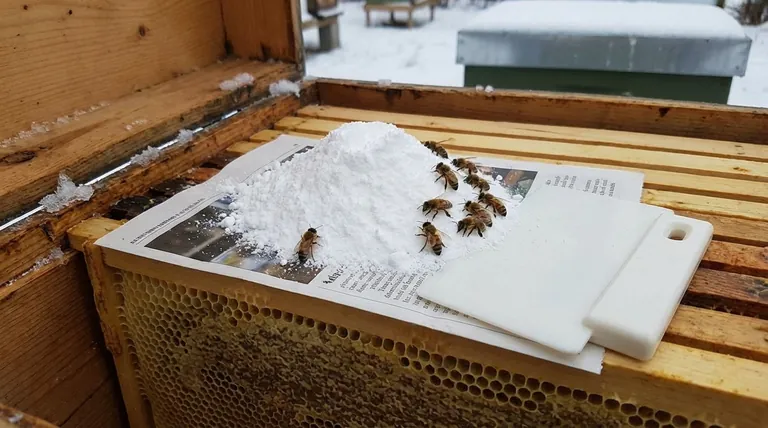
The Challenge of Winter Feeding
Winter presents a unique challenge for a honey bee colony. They do not hibernate but form a tight cluster to generate heat, and this metabolic activity requires a significant and constant supply of energy in the form of honey or a sugar substitute.
Why Bees Need Winter Food
A colony's survival through winter depends entirely on having enough food stores to fuel the "winter cluster." This cluster must maintain a core temperature of around 90-95°F (32-35°C) to protect the queen.
Running out of food is one of the most common reasons a colony dies during the winter. Emergency feeding becomes necessary when their natural honey stores are depleted.
The Problem with Moisture
The biggest danger of traditional feeding in winter is moisture. Feeding bees liquid sugar syrup introduces excess water into the hive environment.
This moisture, combined with cold outside temperatures, can lead to condensation dripping down onto the bee cluster, chilling them and causing death. Drivert sugar, being dry, avoids this problem entirely and can even help absorb ambient moisture.
Understanding Your Sugar Options
While drivert sugar is a specific product, the principles behind it apply to other forms of dry sugar feeding. The key is understanding the properties of each and when to use them.
What is Drivert Sugar?
Drivert sugar is essentially a very finely processed form of sucrose, often referred to as a fondant sugar. Its "special formulation" allows it to remain dry and powdery, making it easy for bees to consume.
Bees can process this dry sugar, using their own saliva and metabolic water to digest it, providing energy without the beekeeper adding any liquid.
Standard Granulated Sugar (Cane vs. Beet)
Regular white granulated sugar is pure sucrose and is perfectly safe for bees. Some beekeepers express a preference for cane sugar over beet sugar, often due to concerns about GMO crops.
However, laboratory analysis confirms that chemically, refined sugar from cane and beets is identical. Tests have shown no difference in bee health or preference, making both equally viable and safe options.
Preparing Sugar Syrup (for other seasons)
Sugar syrup is the standard for feeding during the active seasons (spring and fall) to stimulate growth or supplement stores.
It should be prepared by dissolving sugar in near-boiling water. Crucially, the mixture should never be boiled. Boiling sugar can create a compound called Hydroxymethylfurfural (HMF), which is toxic to bees.
Common Pitfalls in Bee Feeding
Feeding bees seems straightforward, but several common mistakes can harm your colonies or waste your resources. Understanding these pitfalls is as important as choosing the right sugar.
The Danger of Open Feeding
Never leave dry sugar or sugar syrup out in the open. This practice does not selectively feed your bees; it attracts bees from all neighboring colonies, including feral ones.
This leads to a waste of money, can incite "robbing" behavior where strong colonies attack weaker ones, and is a primary vector for spreading diseases and mites throughout your apiary.
The Risk of Incorrect Syrup Preparation
As mentioned, boiling sugar syrup creates HMF, which is toxic. Always dissolve your sugar in hot water, but do not let the mixture come to a boil. The final syrup should be clear and completely dissolved.
Making the Right Choice for Your Colony
Your feeding strategy should adapt to the season and the specific needs of your hive.
- If your primary focus is winter survival: Use a dry sugar source like drivert, a sugar cake, or the "mountain camp" method (piling dry sugar on newspaper) to provide food without adding deadly moisture.
- If your primary focus is stimulating spring growth or fall stores: Use a 1:1 or 2:1 sugar syrup, respectively, inside the hive to mimic a nectar flow and encourage rapid consumption and comb building.
- If your primary focus is cost and accessibility: Standard granulated cane or beet sugar is a perfectly safe and effective base for creating either syrup or dry feeding preparations.
By matching the form of feed to the seasonal challenge, you provide your bees with the precise support they need to thrive.
Summary Table:
| Sugar Type | Best Use Case | Key Advantage |
|---|---|---|
| Drivert Sugar | Winter Feeding | Dry form prevents dangerous hive moisture |
| Sugar Syrup | Spring/Fall Feeding | Mimics nectar flow to stimulate growth |
| Granulated Sugar | Cost-Effective Base | Safe for creating syrup or dry feed |
Ensure your apiary thrives through every season with the right supplies.
HONESTBEE is a trusted wholesale supplier for commercial apiaries and beekeeping equipment distributors. We provide the high-quality feeding supplies and equipment you need to support healthy, productive colonies year-round.
Let's discuss your needs: Contact our wholesale team today to get the right solutions for your operation.
Visual Guide
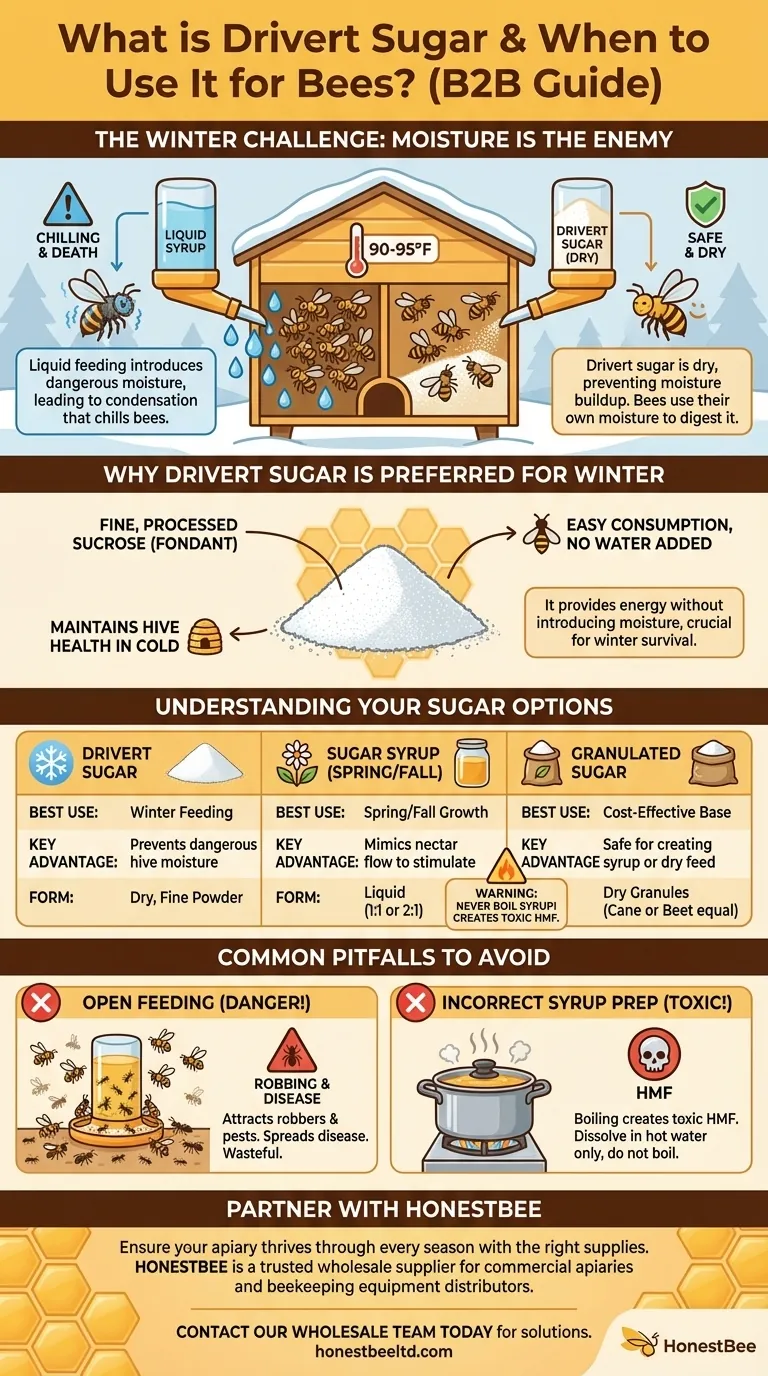
Related Products
- Professional Wide Blade Honey Scraper for Beekeeping and Honey Processing
- Mini Desktop Bee Hive Frame Forming Making Machine
- Electric Double Wall Honey Filtering Machine Purifier Equipment for Honey Processing Plant
- Automatic Pneumatic Bee Frame Machine for Eyelet Insertion
- White PVC Beekeeping Shoes with Non-Slip Safety Sole
People Also Ask
- What is a multifunction scraper tool in beekeeping? Streamline Hive Inspections with the Ultimate All-in-One Tool
- What tools are available for uncapping honey? A Guide to Choosing the Right Tool for Your Operation
- Can I extract uncapped honey? Avoid spoilage by trusting the bees' quality control.
- How can a capping scratcher be used with an electric knife? Boost Efficiency and Honey Yield
- What are the features of an Electric Heating Honey Scraper? Boost Your Beekeeping Efficiency with Thermal Power
